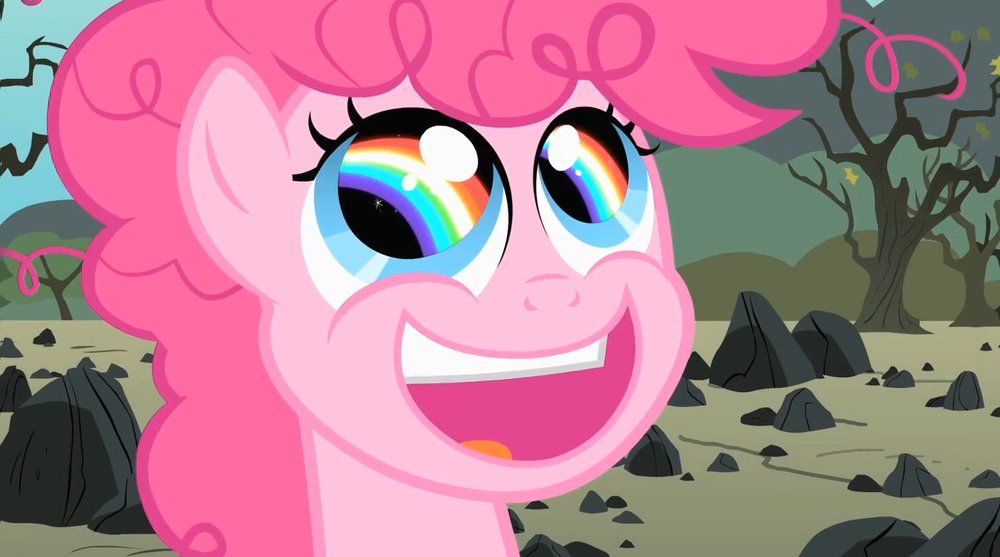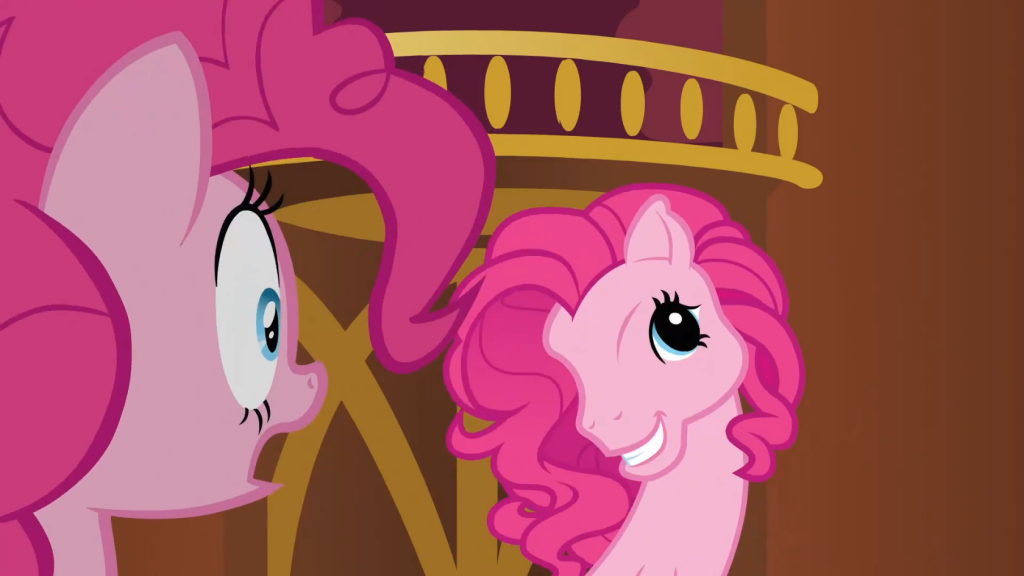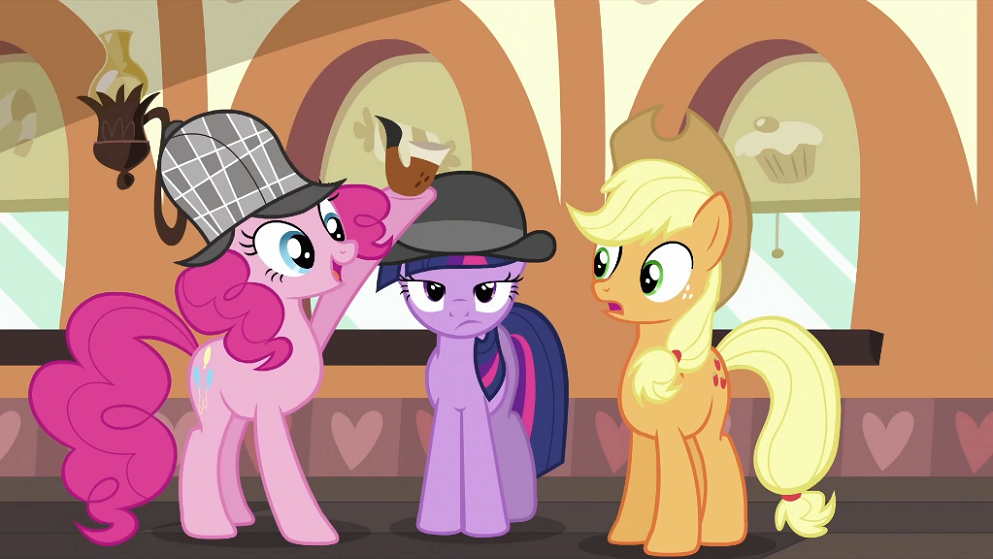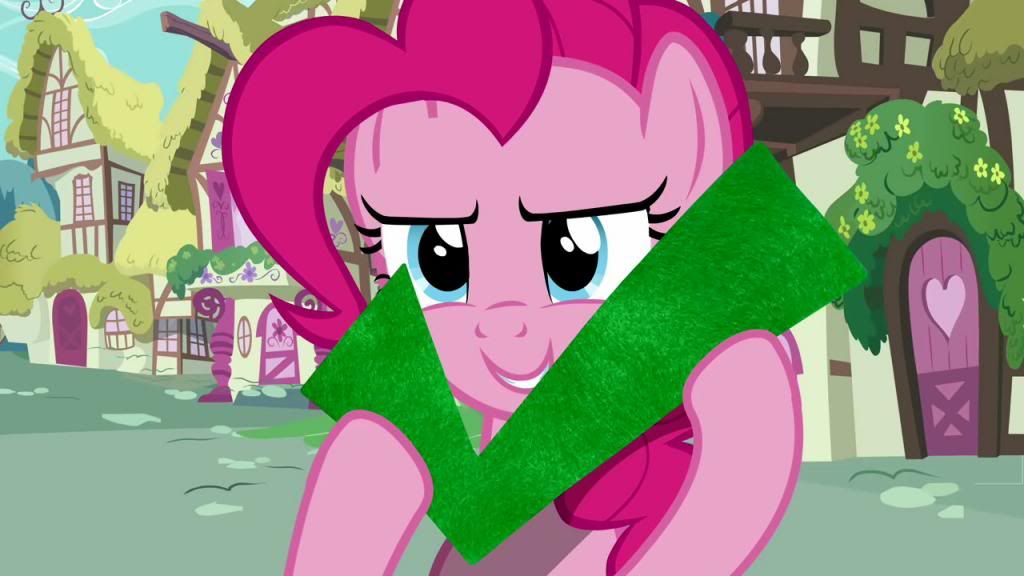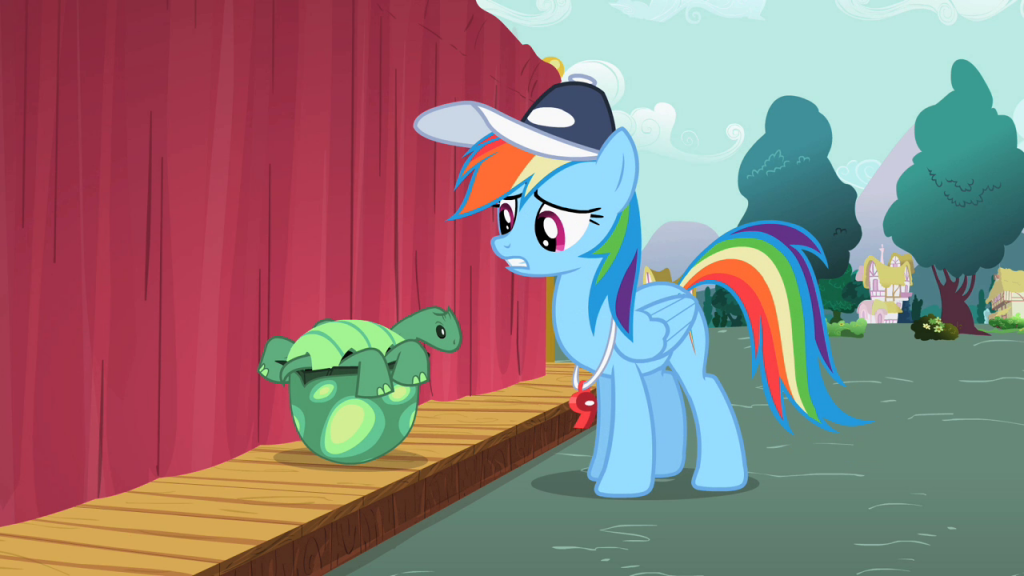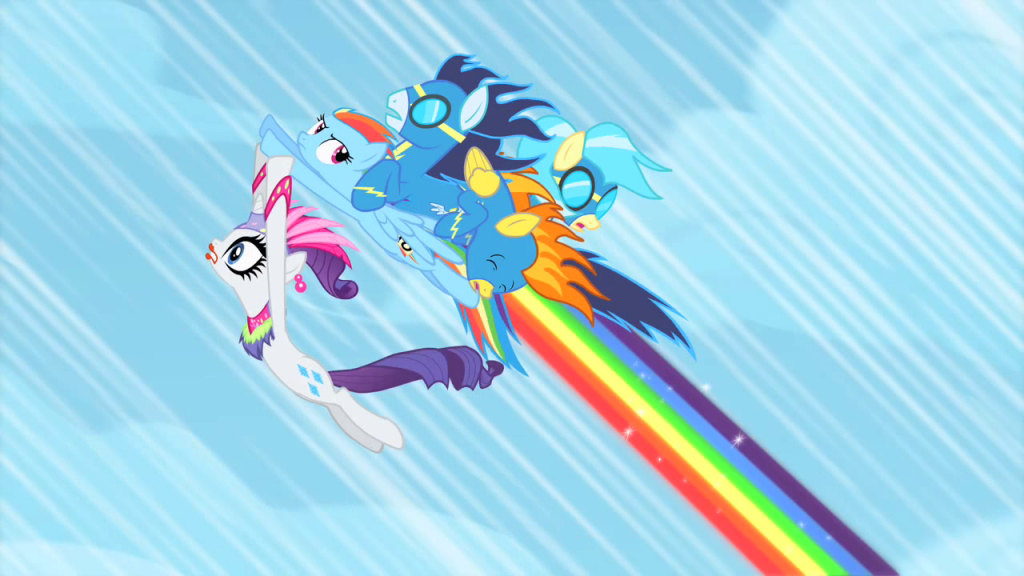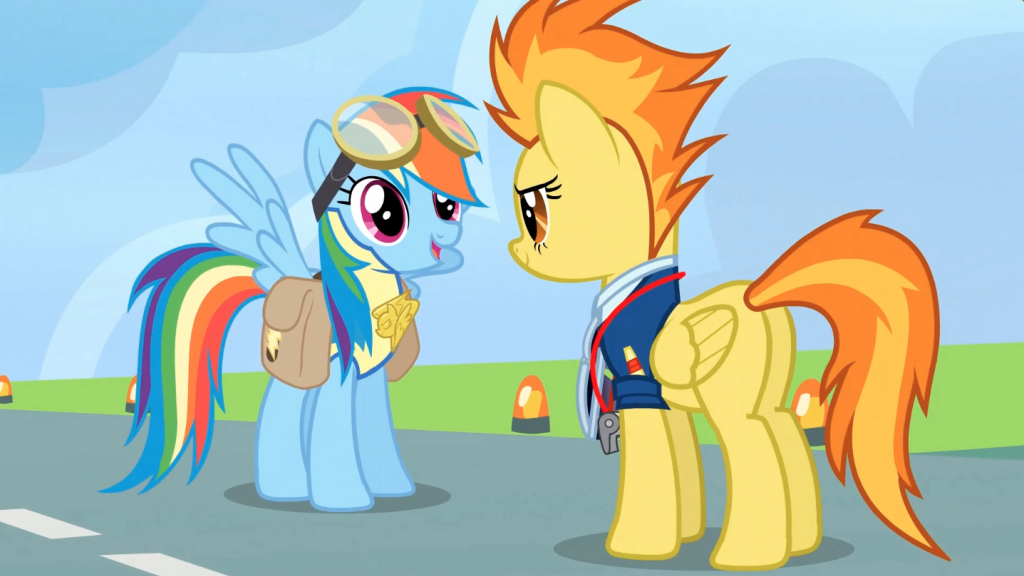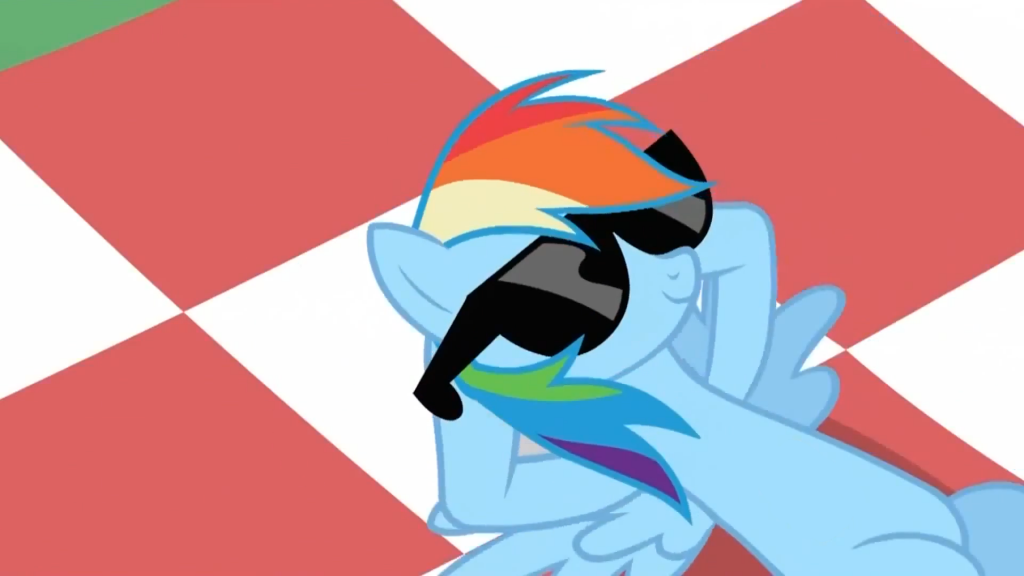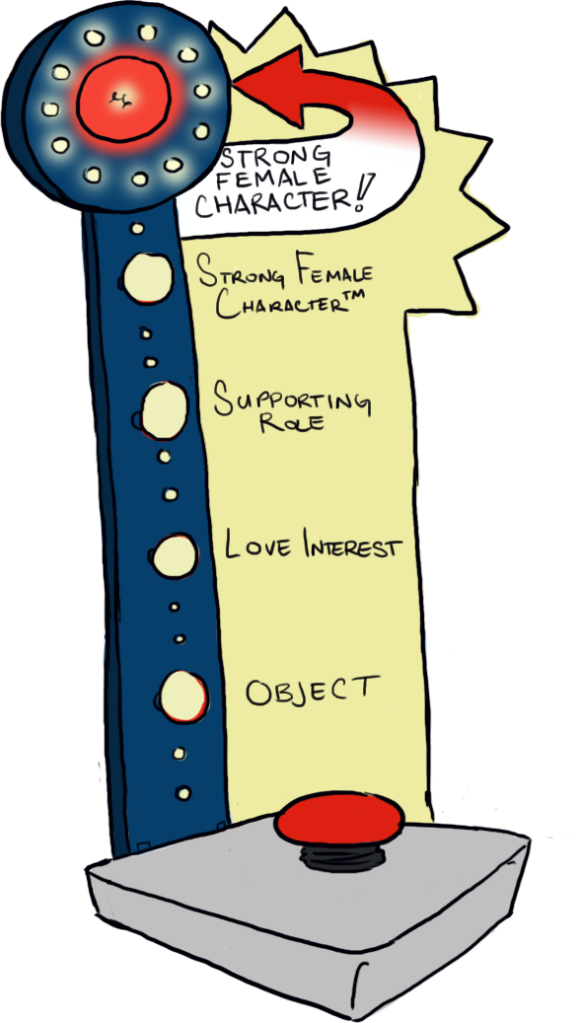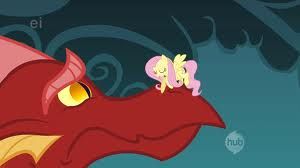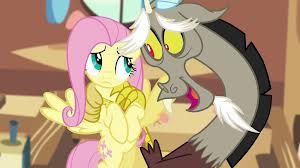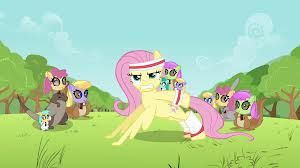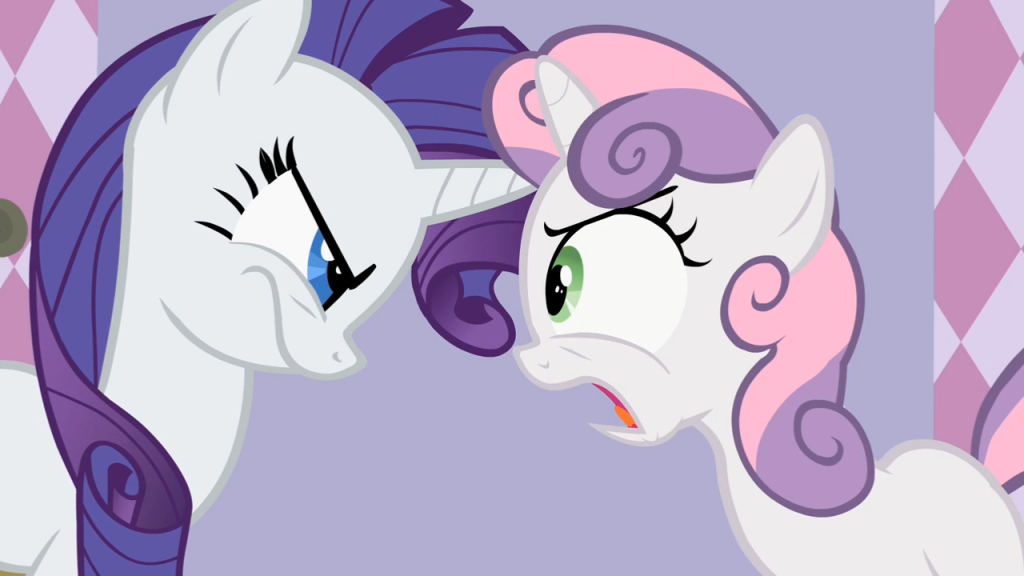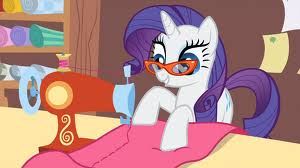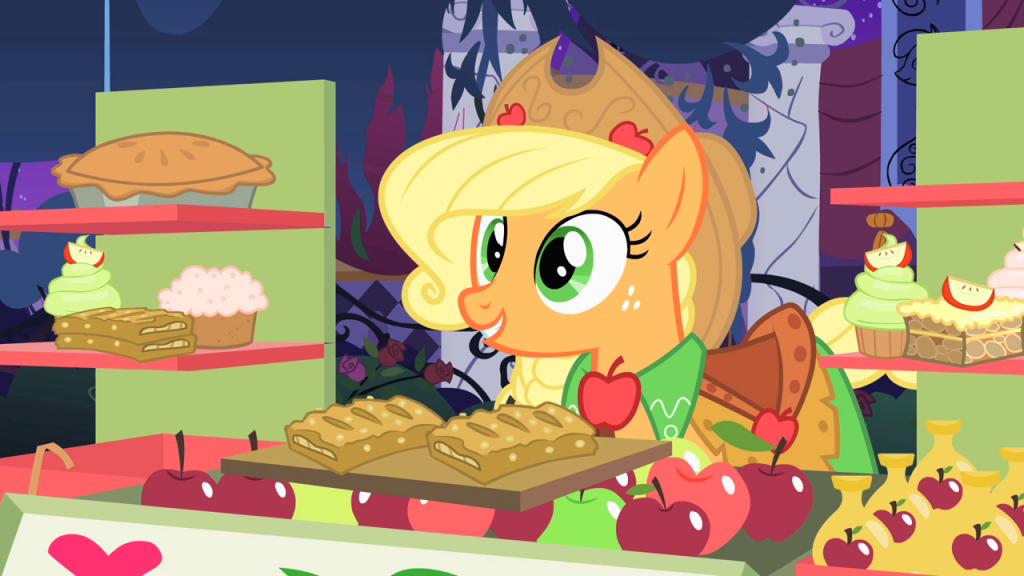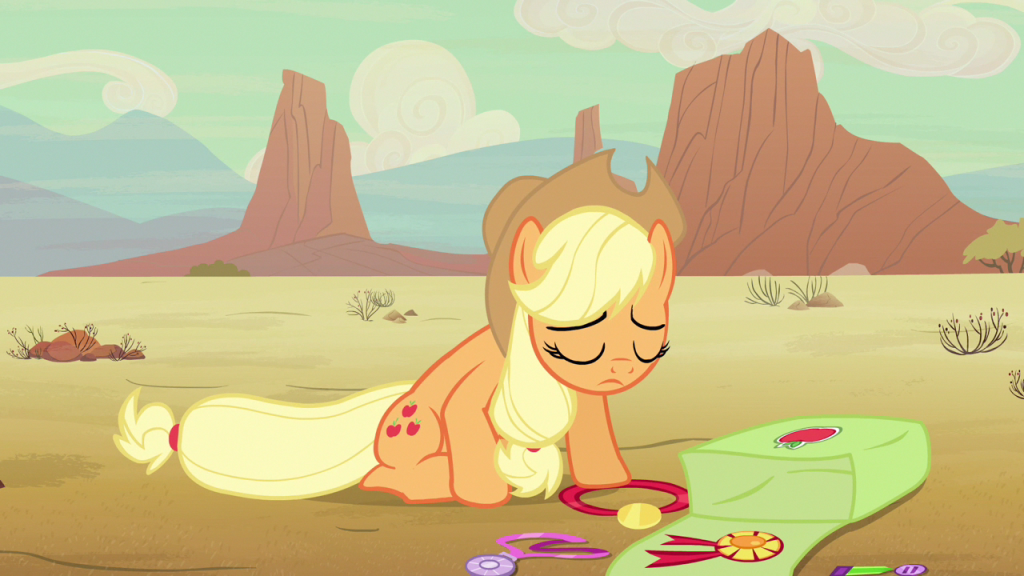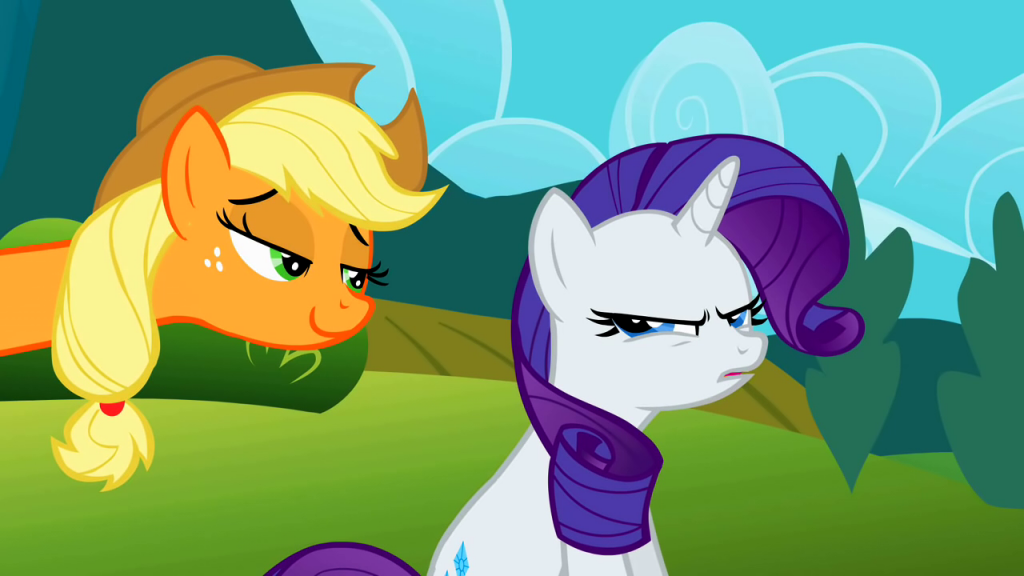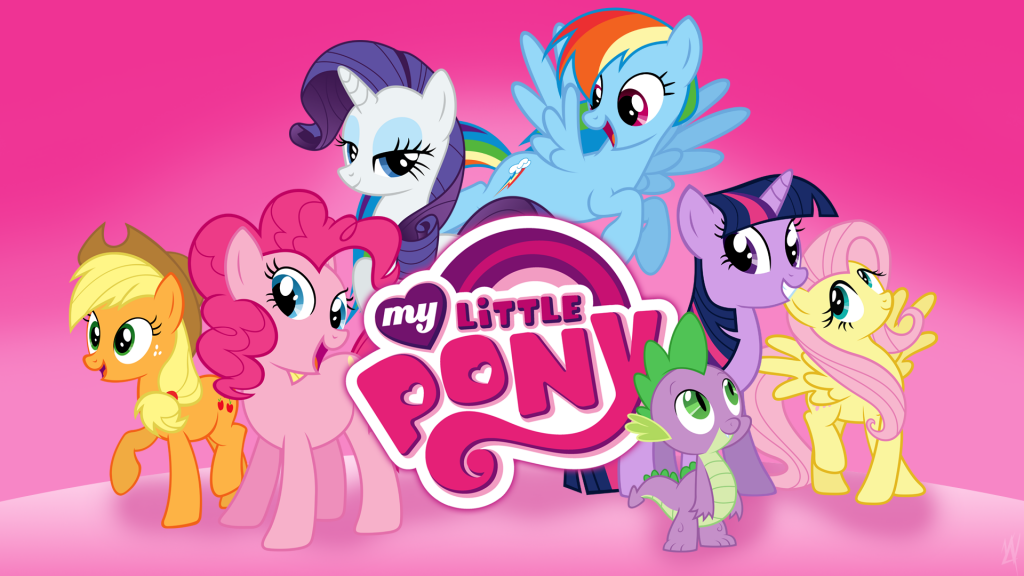 |
| MyLittleVisuals |
In our original plan, there was going to be a Glee month
in either May or June. That was before the fourth season aired, and a
show that had been going downhill made it its mission to burrow deep
into the Earth’s mantle. We were left to ask what deserves our attention
more: an offensive mess that insults its viewers’ intelligence and
makes all the wrong decisions while thumbing its nose at the right ones,
or technicolour ponies. Do you choose the show that makes you happy, or
the show that got picked up for two more seasons and will therefore
still be there when you’re feeling particularly vitriolic and need a
deserving punching bag? It wasn’t exactly a dilemma.
The choice became even easier when I was reminded of Glee’s
ostensible mission statement, that glee, by its very definition, is
about opening yourself up to joy. While the eponymous show has well and
truly failed in this mission, My Little Pony: Friendship is Magic hasn’t. In fact, MLP features a character who has made it her mission to bring joy into other ponies’ lives.
Pinkie
Pie is the ultimate people pleaser. As we see in the story of how she
got her Cutie Mark, she spent her early years on a rock farm grayer than
Dorothy’s Kansas. She and her family never smiled, and life in general
was about as dismal as it could get. One day, while moving rocks from
one field to another, she spotted a rainbow that infused her world with
colour and joy (and her hair with volumizing products). The intense joy
she felt convinced her not only to make a habit of smiling herself, but
to make a lifelong mission out of getting others to smile. To this end,
she throws a party for her family, and the joy she receives from their
consequent smiles causes her Cutie Mark to form.
Pleasing
others is so fundamental to Pinkie Pie’s character that her Element of
Harmony is laughter. When she and the other members of the Mane Six find
themselves in the Everfree Forest in the second episode, she weaponizes
laughter and basically Riddikuluses a set of terrifying trees back to
their original form. What the show never mentions, however, is that
laughter doesn’t really fit in with the other Elements. Loyalty,
kindness, generosity, and honesty -- the other constitutive elements of
friendship, which, as we all know, is magic -- are qualities, while
laughter is an action. On the face of it, it seems like humour might be a
more suitable descriptor for the concept embodied by Pinkie Pie.
At
the same time, I would posit that “laughter,” by virtue of being the
odd one out, was actually very specifically chosen. While the other
Elements represent qualities that are exemplified through actions,
Pinkie’s is an action unto itself. For a pony who explicitly states that
she wants to bring joy to others, the active aspect of inciting
laughter seems fitting. I also wonder if the writers intended for
Pinkie’s Element to be the most limited and limiting.
I
know that that sounds a bit nebulous, so I’ll explain what I mean. For
the rest of the Mane Six, their respective Elements represent one aspect
of their personalities. While Twilight nurtures her magical ability,
she also cultivates her analytical mind, hones her leadership skills,
and learns to cope with her sometimes crippling anxiety. Applejack is
honest, but she is also hard-working, competitive, and heroic.
Fluttershy’s kindness is an integral part of her personality, but the
show focuses more on her shyness and her efforts to overcome traumatic
experiences from her childhood. Rainbow Dash and Rarity actually undergo
a lot of character development that directly relates to the seeming
inconsistencies between their self-centeredness and their respective
Elements of loyalty and generosity.
And
then there’s Pinkie Pie. Her episodes focus on the Element of laughter,
of fun, of pleasing and entertaining others. The show suggests, on
numerous occasions, that there’s not a lot more to Pinkie Pie than her
smile-spreading quest. At the same time, however, it shows Pinkie Pie
fighting this very assumption. In “Baby Cakes,” for example, she sets
out to prove that she can be a responsible person by babysitting the
Cakes’ two children. This requires her to learn that babies need more
than a playmate, and that she needs to be able to do things that aren’t
fun.
The
best example, however, occurs in “Too Many Pinkie Pies.” In this
episode, Pinkie Pie struggles to accept the fact that she can only take
part in one fun activity at a time. Realizing that she lives in a world
where frogs can be transformed into oranges, she quite understandably
goes looking for a magical solution, which she finds in the Mirror Pool.
Using this pool, Pinkie Pie duplicates herself, creating a double
obsessed with fun to the detriment of sustaining actual relationships.
When two Pinkie Pies can’t experience all the fun in Ponyville, they
create two more, who duplicate themselves into a herd of Pinkie Pies.
The clones terrorize Ponyville in their single-minded search for fun,
destroying all the things they were created to enjoy.
The
original Pinkie, meanwhile, is caught in the grip of an existential
crisis. Unlike other duplication storylines, in which the doubled
character fiercely asserts their original status, Pinkie Pie accepts
that there is no way to tell her apart from the clones. Even she,
despite knowing that they lack her memories of her friends and, really,
any higher brain function than that required to process “fun”, comes to
think that she is just another double. Instead of joining her other
selves, she becomes depressed. When Spike observes this, he suggests
that this might be the original Pinkie Pie; Twilight responds that the
real Pinkie “never sat that long in one place her whole life.”
To
my mind, this is where the episode takes a turn for the tragic. On a
show about the power of friendship, one would hope that one of Pinkie’s
friends would realize that she was the original. Maybe they could have
tested the Pinkies’ knowledge of their adventures or of the Mane Six
themselves; after all, Pinkie Pie prides herself on her preternaturally
good memory for her friends’ personal information. Instead, Pinkie Pie
herself comes up with a solution: give the clones a challenge, to do
something that is not fun at all, and the real Pinkie will be the one
who most wants to stay with her friends, despite the fact that they
couldn’t tell her apart from an army of fun-obsessed robots. Pinkie is
expected to prove that her love for her friends is greater than her love
of fun (and, perhaps, greater than the ADHD she might very well have),
while her friends don’t have to prove a thing. The problem is that we
know that Pinkie is devoted to them -- the brief delusional episode she
suffers in “Party of One” when she thinks her best friends are kicking
her out of the group is ample proof -- but we rarely see any of her
friends showing a similar devotion to Pinkie Pie.
In
fact, in several of the Pinkie Pie-focused episodes, we actually see
her become something of an unwitting nemesis for Twilight Sparkle. This
begins in “Feeling Pinkie Keen,” when Twilight learns about her friend’s
“Pinkie sense” -- a form of extrasensory perception that manifests in
uncontrollable muscle spasms -- and immediately dismisses it as hogwash.
Pinkie argues that a magician has no leg to stand on when it comes to
rejecting scientifically impossible things, but Twilight literally gets
on a soapbox to defend the inherent logic of magic. Nevertheless, as all
of Pinkie’s premonitions prove accurate, Twilight must concede that
there are some things that have to believed whether or not they can be
explained.
The
conflict between logic and intuition continues in “MMMystery on the
Friendship Express,” in which Pinkie Pie, who has failed to protect the
Cakes’ entry in a dessert competition from hungry vandals, takes it upon
herself to identify the perpetrators. Unfortunately, she is more
interested in accusation than investigation, and Twilight promptly takes
over as Chief Investigator (and Wearer of the Deerstalker) on the
strength of her long mystery-reading career. Only after Twilight has
solved one mystery does she let Pinkie try her hand at playing Sherlock,
using the deduction methods Twilight employed. One of the reasons why
Pinkie Pie appears to be so strange may simply be because we often see
her actions filtered through the lens of Twilight’s perception, and
Twilight simply doesn’t get her.
Then
again, neither does anyone else. Pinkie Pie’s a tough nut to crack,
partly because she’s so open. In “Griffon the Brush-off,” Rainbow Dash
calls Pinkie Pie random, but I’d argue that there’s more to it than
that. Sure, Pinkie plays ten instruments at once, stores balls around
Ponyville in case of ball shortages, and agonizes over calling her
culinary invention a chimicherry or a cherrychanga, but most of her
actions make sense in a roundabout way. Most of the time, Pinkie Pie
herself is willing to walk people around that roundabout, verbalizing
the mental processes that took her from Point A to Point Q. Usually,
what leads her to make her least overtly logical leaps is a literal or
lexical connection. She understands words exactly as they are, and,
while other ponies grasp the connotations that make figures of speech
make sense, Pinkie Pie must try to connect them as best she can.
In
light of her literal understanding of language, it’s a little strange
that Pinkie Pie has such a liberated view of the world in which she
lives. Pinkie Pie possesses the ability to manipulate the world around
her, allowing her to defy the laws of physics and logic. On several
occasions, she beats pegasi to locations to which they had to fly, with
no explanation as to how she got there. Her internal monologue takes the
form of felt stop motion animation. When she explains her theories
about the identity of the cake vandals, she envisions them in the style
of a silent film, a James Bond movie, and a Japanese ninja flick. In
“Too Many Pinkie Pies,” one of the clones rearranges her face into that
of a G3 My Little Pony, saying, “Bet ya can’t make a face crazier than
this!” On some level, Pinkie Pie seems to realize that she is in a
cartoon, and she is making the most of it.
Verdict: Pinkie Pie defies categorization
